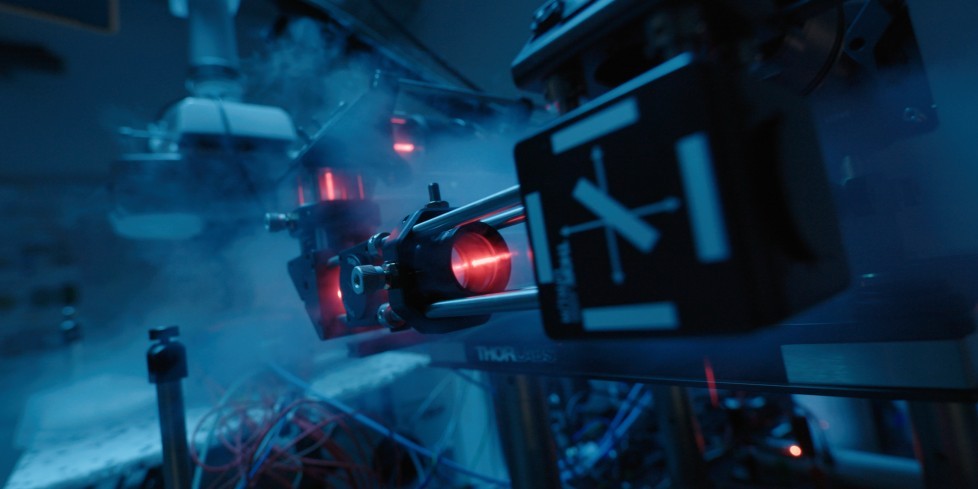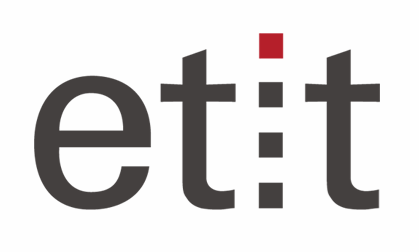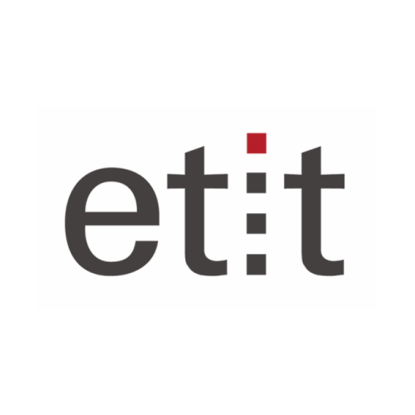A revolution with biomaterials
Cluster project CoM2Life clears the first hurdle in its application for Cluster of Excellence funding
2024/02/05 by CoM2Life /bjb / Claudia Staub / sas
2024 As one of three successful draft proposals submitted by TU Darmstadt the CoM2Life cluster project has been selected and invited to prepare full applications and submit them for funding as part of the Cluster of Excellence funding line. Researchers in the CoM2Life project at the Johannes Gutenberg University Mainz, Max Planck Institute for Polymer Research and TU Darmstadt are conducting research into biomaterials that will enable medical innovations such as tissue repair or the development of artificial organs. The site spokesperson for CoM2Life at TU Darmstadt is etit Professor Heinz Koeppl.

The aim of the CoM2Life project is to develop a revolutionary generation of soft biomaterials by integrating principles from living systems into the materials so that they can remain in continuous and bidirectional communication with biological systems such as cells and tissue. The researchers are following an approach that combines chemistry-centred biomaterials design with the synthetic biology-centred design of regulatory circuits. This will enable the development of smart biomaterials that are capable of selectively detecting and internally processing signals from their local environment and controlling appropriate actuators and effectors.
“We need to fundamentally consider which concepts – beyond e.g. mRNA-based therapies – could revolutionise the field of biomaterials in the next ten to twenty years. Smart soft materials – such as artificial cells with advanced signal processing abilities – could open up new groundbreaking approaches in this area”, says the spokesperson team, consisting of Prof. Dr. Andreas Walther (Johannes Gutenberg University Main), Prof. Dr. Heinz Koeppl (Centre for Synthetic Biology, TU Darmstadt) and Prof. Dr. Tanja Weil (Max Planck Institute for Polymer Research). “We have reached a point where it is possible to design smart materials that can independently process signals. And we believe that we can now use this as a fundamentally new and interdisciplinary impetus to push forward important developments.”
Based on an in-depth understanding of the molecular communication between synthetic material systems that exhibit life-like properties and living biological systems, the goal of CoM2Life is to pave the way for groundbreaking developments in medical research. This includes the development of feedback-controlled materials for the needs-based delivery of medicines and biological effectors in cancer immunotherapy and tissue regeneration, as well as the development of new tissue models that can replace animal testing and in the long term the engineering of artificial organs.
Prof. Dr. Heinz Koeppl
We are excited by the opportunity to submit a full application for CoM2Life. This initiative marks an important milestone in the development of new smart materials and it is synthetic biology that will make molecular intelligence possible. The Centre for Synthetic Biology and the work in this field at TU Darmstadt have laid important groundwork for this research over the last few years.

CoM2Life is a synergistic collaboration between JGU Mainz, TU Darmstadt and the Max Planck Institute for Polymer Research. Alongside their excellence in the natural sciences, experts from the communication sciences are also participating in this highly interdisciplinary research project in order to combat the risk of misinformation that is prevalent in the world today. The spokesperson team added: “The positive response from the assessors has given us huge motivation and we are excited to further develop our concept for the convergence of synthetic biology and smart biomaterials. This interface between these two fields of research offers huge potential for groundbreaking research results and applications.”
etit represented several times in Clusters of Excellence
In addition to Professor Heinz Koeppl as site spokesperson for TU Darmstadt, two other etit professors, Professor Vahid Jamali and Professor Thomas Burg, are involved in the CoM2Life cluster project. Professor Heinz Koeppl also represents the etit Department as Principal Investigator in the cluster project Reasonable Artificial Intelligence (RAI), which was also nominated for the full application.
TU Darmstadt has a chance of three Clusters of Excellence
The Excellence Strategy is a funding programme of the German federal and state governments to strengthen cutting-edge research in Germany. Projects must overcome a highly competitive, multi-stage selection procedure in order to receive funding. TU Darmstadt has now been invited to submit full applications to establish Clusters of Excellence for the projects “Reasonable Artificial Intelligence” (RAI), “The Adaptive Mind” (TAM) and “CoM2Life” in fields of artificial intelligence, cognitive science and biomaterials. The selections were made by an international panel of experts. A total of 143 outline proposals were submitted to the German Research Foundation (DFG), of which 41 have now been invited to submit full applications for the second round of the Excellence Strategy funding programme.
The project CoM2Life is being carried out jointly with Johannes Gutenberg University Mainz. The decisions on which projects can establish new Clusters of Excellence and which existing clusters that were set up during the first round of proposals will receive continued funding will be made in May 2025. Funding can be provided to a total of up to 70 Clusters of Excellence and the German federal and state governments provide total funding of 539 million euros per year for this purpose.
About the excellence strategy of the federal and state governments
To further strengthen the international competitiveness of research at German universities, the federal and state governments have established the Excellence Strategy as a funding programme. The key objective of the Excellence Strategy is to strengthen top-level research in areas that are internationally competitive, to institutionally strengthen German universities, and to advance the development of the German higher education system.
To this end, the Excellence Strategy comprises two separate but intertwined funding lines. The “Clusters of Excellence” funding line, coordinated by the German Research Foundation (Deutsche Forschungsgemeinschaft – DFG) provides project-based funding for internationally competitive research areas at German universities. The “Universities of Excellence” funding line, coordinated by the German Science and Humanities Council (Wissenschaftsrat – WR), is designed to fund institutional strategies that promise to strengthen universities as a whole and create outstanding framework conditions for excellent research.
Always up-to-date with exciting news from the etit campus: Follow us on Instagram!
Recommended external content
We have selected external content from Instagram for you and would like to show it to you right here. To do this, you must reveal it with one click. You can hide the external content at any time with another click.
I agree to external content from X being shown to me. This may result in personal data being transmitted to third-party platforms. You can find more information in our Privacy Policy.



